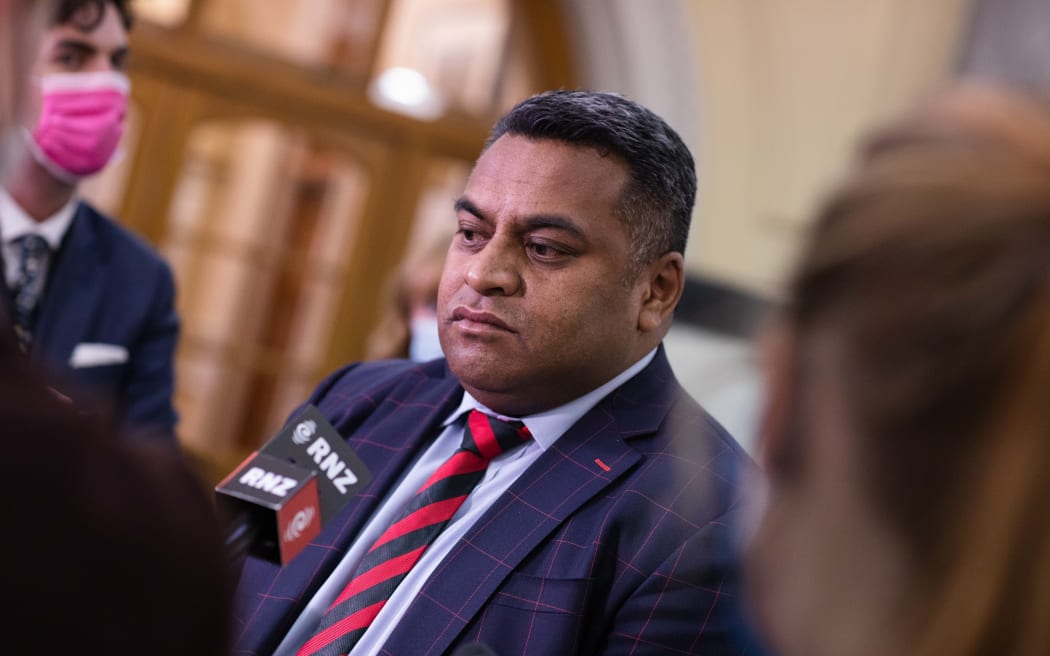Kris Faafoi's move into lobbying so soon after leaving parliament has put the spotlight on what lobbyists do and the power they wield. The Detail looks at whether this is an area where rules are needed to increase transparency.

Less than three months after leaving Parliament, former Cabinet minister Kris Faafoi is heading up a new PR and lobbying firm. Photo: RNZ / Angus Dreaver
Lobbying is, in a sense, as old as democracy itself.
When there are people who exercise power over others' lives, who make decisions that affect others, you should have the ability to talk to them, to let them know how things are on the ground floor, to provide useful information and context about what the impact of those decisions should be.
The question is: is there equitable access to this ability to lobby? And what are the ethical and professional regulations and considerations pertaining to professional lobbying - people who make their living by advocating certain positions to decision-makers?
Earlier this month, it emerged the former Cabinet minister Kris Faafoi was starting up a new PR and lobbying firm, just three months after leaving Parliament.
The move was controversial, with many observers suggesting Faafoi was leveraging high-level knowledge of this government’s plans for personal gain.
Lobbying might be painted as inherently villainous or manipulative - think tobacco or oil and gas companies - but the director of Victoria University's Institute for Governance and Policy Studies Simon Chapple points out that many much more innocent activities fit the definition too.
"If I bump into my local MP at the school fair and start bending his or her ear about whatever the issue of the day is...am I lobbying my local MP?
"There are a wide variety of forms of lobbying - some of which are accessible to the ordinary New Zealander, but most of which aren't."
One which isn't readily accessible to most people - unless you have a decent-sized cheque book - is hiring a professional lobbying firm, such as the one Faafoi recently set up.
Faafoi was criticised in many quarters for changing occupations too quickly - but New Zealand, unlike many other western nations, doesn’t have an obligatory stand-down period between working as an MP and transitioning to lobbying.
"You can do it," says Holly Bennett, the founder of lobbying firm Awhi. She previously worked as a ministerial and policy adviser in parliament before establishing Awhi about five years ago.
"The question is: should it be able to be like that? Is it appropriate? And I would argue, no, it's not appropriate."
It should be pointed out that Faafoi is Bennett's competition, and his entry into the lobbying market may pose a threat to her.
But, when asked how his situation is different to her own, Bennett is frank.
"It's not really different at all.
"The argument is whether people like me should be able to go and do that.
"The reason nobody was interested in me is I wasn't a minister, I was a mid-tier advisor. And so no-one gave me second notice.
"The discussion for us now is whether or not we think that's appropriate. And I think it's entirely inappropriate. I shouldn’t have been able to do that."
Chapple says there are very few regulations pertaining to lobbying in New Zealand at present.
Green MP Holly Walker did introduce a bill in 2012 aimed at introducing some regulations to the sector, but it was voted down, with some critics saying it interpreted the term 'lobbying' too broadly.
And that’s something that has to be grappled with: while we might not be comfortable with the idea that anonymous people are using their political connections to grease the wheels of government, lobbying at its core is giving decision-makers information to help them make decisions.
Chapple says shedding more sunlight on this industry is a good idea at this point in time. He argues much of the western world has suffered a loss of confidence from the public in their democratic institutions, and improving transparency and public accountability may help to arrest this trend.
He advocates for a public register for professional lobbyists, and suggests a stand-down period for people moving from politics into professional lobbying could help too.
Bennett also believes more transparency would be beneficial, and argues in favour of a more industry-led approach, with three main suggestions: a code of conduct; a register; and the establishment of an industry regulatory body, similar to the Media Council.
Find out how to listen and subscribe to The Detail here.
You can also stay up-to-date by liking us on Facebook or following us on Twitter.

Photo:


